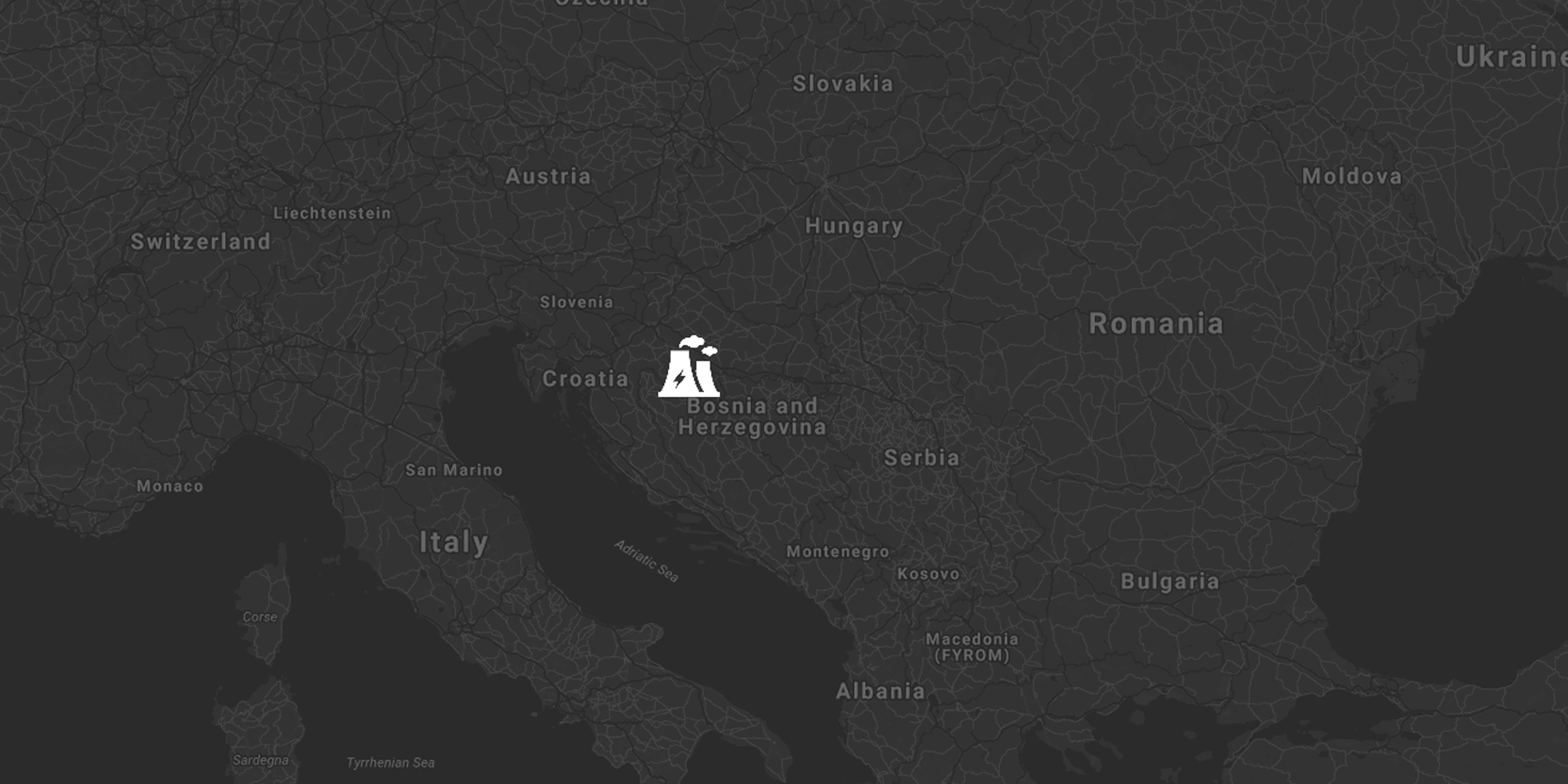Kamengrad lignite power plant, Bosnia-Herzegovina
An idea to build a power plant at the open-cast Kamengrad coal mine near Sanski Most in the Federation of Bosnia and Herzegovina has been around for years, but in November 2017 it took a step forward with the signing of a Memorandum of Understanding between Energy China International and the construction supplier Lager d.o.o. for a 2 x 215 MW plant.

Stay informed
We closely follow international public finance and bring critical updates from the ground.
Background
An idea to build a power plant at the open-cast Kamengrad coal mine near Sanski Most in the Federation of Bosnia and Herzegovina has been around for years, but in November 2017 it took a step forward with the signing of a Memorandum of Understanding between Energy China International and the construction supplier Lager d.o.o. for a 2 x 215 MW plant.
Few details are available about the plant, and it has no environmental permit and no financing. As with other plants across the region, unrealistic employment promises have already been made. In December 2017 head of the Sanski Most District Faris Hasanbegović stated that it would provide 1000 workplaces.
This does not appear to have convinced local people, however. As it would be a new power plant, it has attracted much more opposition locally than most other planned plants in the country. Sanski Most is located on the beautiful river Sana and prides itself on having no fewer than nine rivers in the district altogether. As a scenic and green area many of its residents feel that the power plant will spoil its potential for agriculture and tourism rather than bringing prosperity.
At a public debate on the adoption of the Una-Sana Canton spatial plan in August 2018, Sanski Most residents and the local council demanded the removal of the power plant project from the plan. This was carried out, although the plan was never adopted. In November 2019, another presentation of the Kamengrad coal power plant project appeared on the agenda of the Sanski Most Municipal Council. However, the meeting was cancelled after public pressure.
Another issue is that the concession for the mine was awarded to Lager d.o.o. after a bankruptcy procedure was carried out for the previous operator, RMU Kamengrad, but in 2017 the bankruptcy decision was declared illegal by the Constitutional Court of Bosnia and Herzegovina and returned to the Una-Sana Canton court.
As of early 2024, the plant is very unlikely to go ahead but has not been officially cancelled.
Latest news
Independent data highlights air pollution crisis in Tuzla, Bosnia and Herzegovina
Press release | 25 June, 2019Dust pollution in Tuzla, Bosnia and Herzegovina, has been twice the legal limit on two thirds of monitored days in 2018 and caused over one hundred premature deaths in adults during the year, according to independent new data published today in the report Lifting the Smog [1] by CEE Bankwatch Network, the Health and Environment Alliance – HEAL and the Center for Ecology and Energy in Bosnia and Herzegovina.
Read moreMoney for nothing: Ugljevik III coal concession must be cancelled, not bought off
Blog entry | 7 June, 2019After years of speculation about the Ugljevik III coal power project in Bosnia-Herzegovina, this week’s news is that the government wants to buy off Comsar Energy’s concession. Yet if the company hasn’t fulfilled the conditions from the contract, why should it be rewarded?
Read moreKosova e Re power purchase agreement challenged at Energy Community
Bankwatch in the media | 14 May, 2019Kosovar and international non-governmental organizations have filed an official complaint to the Energy Community’s (EnC) dispute settlement mechanism, challenging the legality of the power purchase agreement (PPA) for the planned Kosova e Re coal powe
Read moreRelated publications
How to advance a just transition in the Western Balkans: Recommendations for the EU and national institutions
Briefing | 27 September, 2024 | Download PDFThis briefing takes stock of the current situation with the decarbonisation of the Western Balkans’s economy and summarises the progress on just transition in each country.
Comply or Close 2024: six years of deadly legal breaches by Western Balkan coal plants
Report | 17 September, 2024 | Download PDFThe end of 2023 marked six years since the deadline passed for power plants in the Western Balkans to meet new air pollution standards. Yet the deadly air pollution from the region’s mostly antiquated coal power plants has hardly decreased at all since 2018.
From quantity to quality: how to improve the infrastructure project selection process under the Western Balkans Investment Framework
Report | 29 August, 2024 | Download PDFThe Western Balkans Investment Framework provides finance and technical assistance for investments, particularly in infrastructure, energy efficiency and private sector development.
